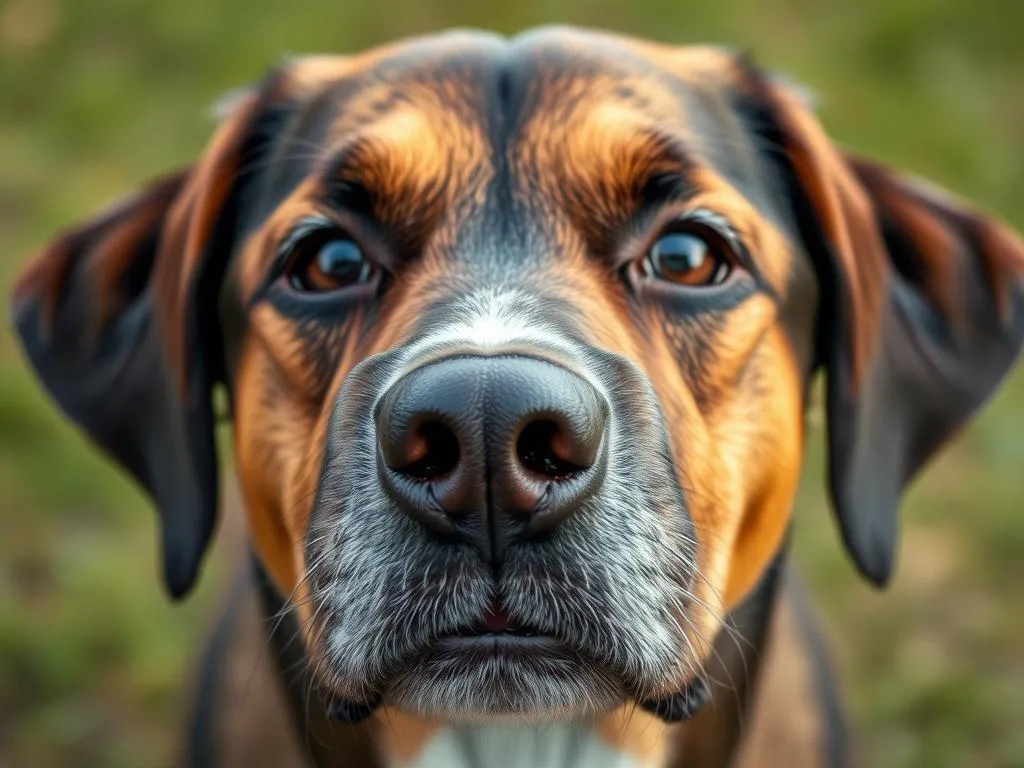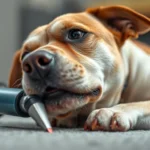
Introduction
As a loving dog owner, it’s natural to be concerned about any changes in your pet’s health, including their nose. A chapped nose can be a common issue among dogs, but understanding the underlying causes and treatments can make a significant difference. This article aims to provide you with a comprehensive guide to why your dog’s nose may become chapped, the significance of nose health, and what you can do to remedy the situation.
A dog’s nose plays a crucial role in their overall health and well-being. Not only does it assist in scent detection, but it also helps regulate their body temperature. Therefore, knowing why is my dog nose chapped is essential for every pet parent to ensure their furry friend remains happy and healthy.
Understanding Dog Nose Anatomy
Structure of a Dog’s Nose
A dog’s nose is an intricate organ composed of various structures. The external part, known as the rhinarium, is made up of sensitive skin that is moist and cool to the touch. Internally, the nasal cavity contains olfactory receptors that enhance a dog’s remarkable sense of smell. The moisture on a dog’s nose is vital, as it helps to absorb scent particles and aids in their ability to detect odors.
Functions of a Dog’s Nose
The nose serves multiple essential functions for dogs. Chief among these is its role in scent detection; dogs have an extraordinary olfactory capability, making their noses crucial for exploring their environment. Additionally, the moist surface of a dog’s nose helps regulate their body temperature, acting as a natural cooling mechanism. Understanding these functions can help dog owners appreciate the significance of maintaining the health of their dog’s nose.
Common Causes of Chapped Noses
Environmental Factors
Weather Conditions
One of the primary reasons for a chapped nose is environmental stressors. Extreme weather conditions, whether hot, cold, or dry, can severely affect the moisture levels in a dog’s nose. Cold weather can cause the skin to crack, while hot weather can lead to dehydration, both of which contribute to chapping.
Humidity Levels
The humidity in the air also plays a vital role in nose health. Low humidity can dry out the skin, leading to irritations and cracks. Conversely, high humidity can help keep a dog’s nose moist and healthy. Monitoring your home’s humidity levels can be beneficial in preventing nose issues.
Health-Related Issues
Allergies
Just like humans, dogs can suffer from allergies that may cause their noses to become chapped. Common allergens include pollen, dust mites, and certain food ingredients. When a dog is allergic, their body may react by causing inflammation and dryness in the nose area.
Nutritional Deficiencies
A balanced diet is essential for maintaining good health, including skin and nose health. Deficiencies in vital nutrients such as fatty acids, vitamins, and minerals can lead to a chapped nose. Ensuring your dog receives a well-rounded diet can help prevent this issue.
Diseases
Certain medical conditions, particularly autoimmune diseases, can affect the health of a dog’s nose. These illnesses can lead to chronic inflammation, resulting in a chapped or cracked nose. If you notice persistent symptoms, it is crucial to consult a veterinarian.
Symptoms of a Chapped Nose
Visual Indicators
When a dog’s nose becomes chapped, there are several visual signs to look for. These may include:
- Cracking: Noticeable splits or fissures on the surface.
- Peeling: Flaky skin that may resemble dry patches.
- Color Changes: A shift in color, such as from dark to light or vice versa, may indicate irritation.
Behavioral Changes
In addition to visual symptoms, you may observe behavioral changes in your dog. They may rub their nose against surfaces or lick it excessively, indicating discomfort. Such behaviors can be a sign that your dog is experiencing irritation or pain from their chapped nose.
When to Be Concerned
While occasional dryness may not be alarming, persistent symptoms warrant veterinary attention. If your dog’s nose appears consistently chapped, red, or irritated, or if you notice any discharge, it’s essential to consult a veterinarian to rule out underlying health issues.
Diagnosing the Problem
Home Assessment
As a responsible pet owner, you can perform a basic assessment of your dog’s nose condition at home. Look for signs of cracking, peeling, or discoloration. Observe your dog’s behavior to see if they are showing signs of discomfort. Additionally, consider any recent changes in their environment or diet that may have contributed to the problem.
Veterinary Examination
If the symptoms persist, a veterinary examination is necessary. During the visit, the vet will conduct a thorough evaluation of your dog’s nose and may ask questions about their diet, environment, and health history. Common diagnostic tests, such as skin scrapings or allergy tests, may be performed to determine the underlying cause of the chapped nose.
Treatment Options
Home Remedies
Moisturizers and Ointments
For mild cases of a chapped nose, several home remedies can help. Applying a pet-safe moisturizer or ointment can provide relief. Look for products specifically designed for dogs, as human lotions may contain harmful ingredients.
Natural Solutions
Natural remedies can also be effective. Coconut oil, for example, is known for its moisturizing properties and can help soothe a chapped nose. Shea butter is another great option, providing both moisture and nourishment. Apply these products sparingly to avoid excessive licking.
Veterinary Treatments
If your dog’s nose condition is severe or caused by an underlying health issue, your veterinarian may prescribe medications. This could include topical treatments or oral medications to reduce inflammation and promote healing. Specialized treatments may be necessary for autoimmune diseases or other serious conditions affecting the nose.
Preventing Chapped Noses
Environmental Adjustments
Preventing a chapped nose often starts with making environmental adjustments. Keeping your home humidified during dry seasons can significantly help maintain moisture levels. Additionally, providing shade and ample fresh water when outdoors can protect your dog’s nose from the elements.
Nutritional Considerations
A balanced and nutritious diet is crucial for maintaining your dog’s overall health, including their skin and nose. Ensure that your dog’s food contains essential fatty acids, vitamins, and minerals. Consulting with a veterinarian about dietary supplements can also be beneficial in promoting skin health.
Regular Check-ups
Routine veterinary visits are vital for monitoring your dog’s health. Regular check-ups allow for early detection of potential issues, including those affecting the nose. Keeping your dog’s vaccinations up to date and discussing any concerns with your vet can help prevent future health problems.
Conclusion
In summary, understanding why is my dog nose chapped is essential for providing the best care for your pet. Various factors, including environmental conditions, allergies, nutritional deficiencies, and underlying diseases, can contribute to this issue. By recognizing the symptoms, taking preventive measures, and seeking appropriate treatments, you can help keep your dog’s nose healthy and comfortable.
As a dog owner, it is reassuring to know that many cases of chapped noses are manageable with proper care and attention. If you notice persistent issues or severe symptoms, do not hesitate to contact your veterinarian for guidance.
FAQs
Frequently Asked Questions about Dog Nose Health
What are common causes of a chapped nose in dogs?
Common causes include environmental factors like weather changes, health-related issues such as allergies or nutritional deficiencies, and diseases.
How can I tell if my dog’s nose is chapped?
Look for visual indicators like cracking, peeling, or color changes, as well as behavioral signs such as rubbing or excessive licking.
When should I see a vet for my dog’s chapped nose?
If the symptoms persist or worsen, or if you notice other concerning signs like discharge, it’s essential to consult your veterinarian.
Tips for First-Time Dog Owners
For new pet owners, maintaining your dog’s health can seem overwhelming. Focus on providing a balanced diet, regular exercise, and routine veterinary check-ups to ensure your dog remains healthy and happy. Educating yourself on common health issues, such as a chapped nose, will help you take proactive steps in your dog’s care. Remember, your veterinarian is an invaluable resource for any questions you may have regarding your dog’s health.









